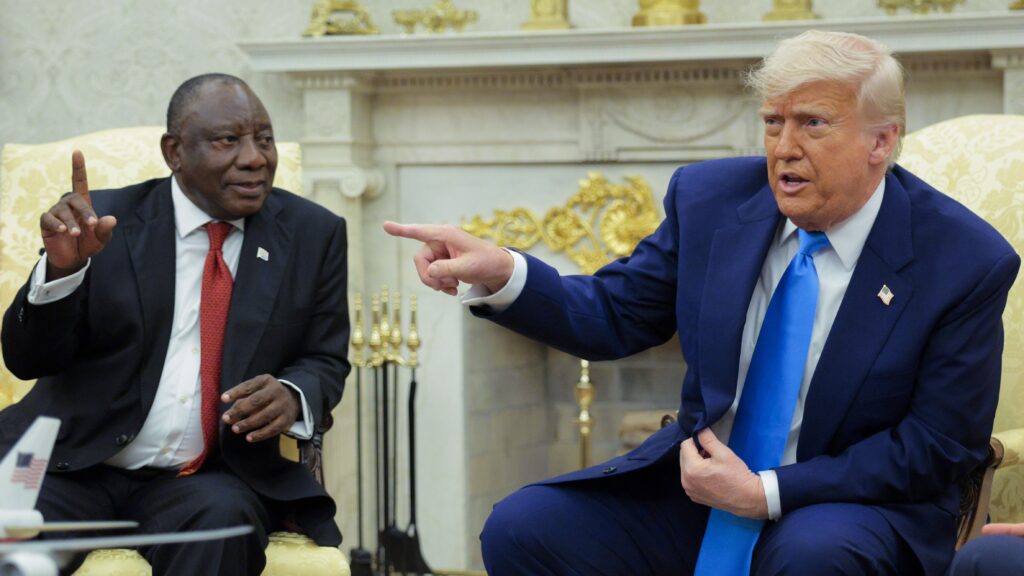South Africans Divided on Cyril Ramaphosa’s Confrontation with Donald Trump
In a recent Oval Office meeting, former U.S. President Donald Trump leveled accusations against South African President Cyril Ramaphosa, regarding the alleged persecution of Afrikaners in South Africa. The encounter, marked by tension and political theater, has sparked a significant debate within South Africa itself.
Trump’s appearance has resonated with certain right-wing Afrikaner groups, who quickly praised his comments as a spotlight on what they perceive as severe issues plaguing South Africa. The Solidarity Movement, a prominent organization advocating for Afrikaners, expressed their approval, claiming that Trump’s highlighting of the country’s problems is essential for global awareness.
Ernst Roets, a key figure in the Afrikaner right, took to social media, stating, “Donald Trump made history today.” He was particularly grateful to Trump for presenting video evidence of the inflammatory remarks made by Julius Malema, the leader of the Economic Freedom Fighters (EFF), who has previously sung the controversial song “Shoot the Boer.”
| Individual | Position | Notable Quotes |
|---|---|---|
| Cyril Ramaphosa | President of South Africa | “South Africa is a democracy…” |
| Ernst Roets | Afrikaner Activist | “Donald Trump made history today.” |
| Zingiswa Losi | Trade Union Leader | “The problem is not necessarily about race, but it is about crime.” |
However, Ramaphosa maintained his composure during the confrontation, which many South Africans viewed favorably. Critics express concerns that the right-wing groups’ actions may reflect poorly on national unity. They argue that the government is committed to addressing pressing issues like crime and unemployment, which affects individuals across all racial lines.
In the discussion, Ramaphosa emphasized South Africa’s democratic values and the constitutional rights of all political parties, including the controversial EFF. John Steenhuisen, the leader of the Democratic Alliance (DA), also tackled the topic, acknowledging the country’s safety issues while urging that the majority of farmers, across races, remain committed to their land and communities. He reassured Trump that a significant number of farmers want to thrive in South Africa despite the challenges.
Trump’s use of Malema’s song during the meeting only heightened tensions, given the historical context of the song and its implications. Nonetheless, Ramaphosa articulated that discussions surrounding such topics need to be approached with careful consideration, reminding Trump that existing laws protect the rights of individuals to express themselves politically.
The meeting has ignited discussions about the broader socio-political landscape in South Africa, wherein fragmented perspectives reveal an ongoing tension between perceptions of safety, racial equality, and national identity. As many South Africans continue to call for unity, reactions to Trump’s intervention will likely evolve, further shaping the nation’s political discourse.


